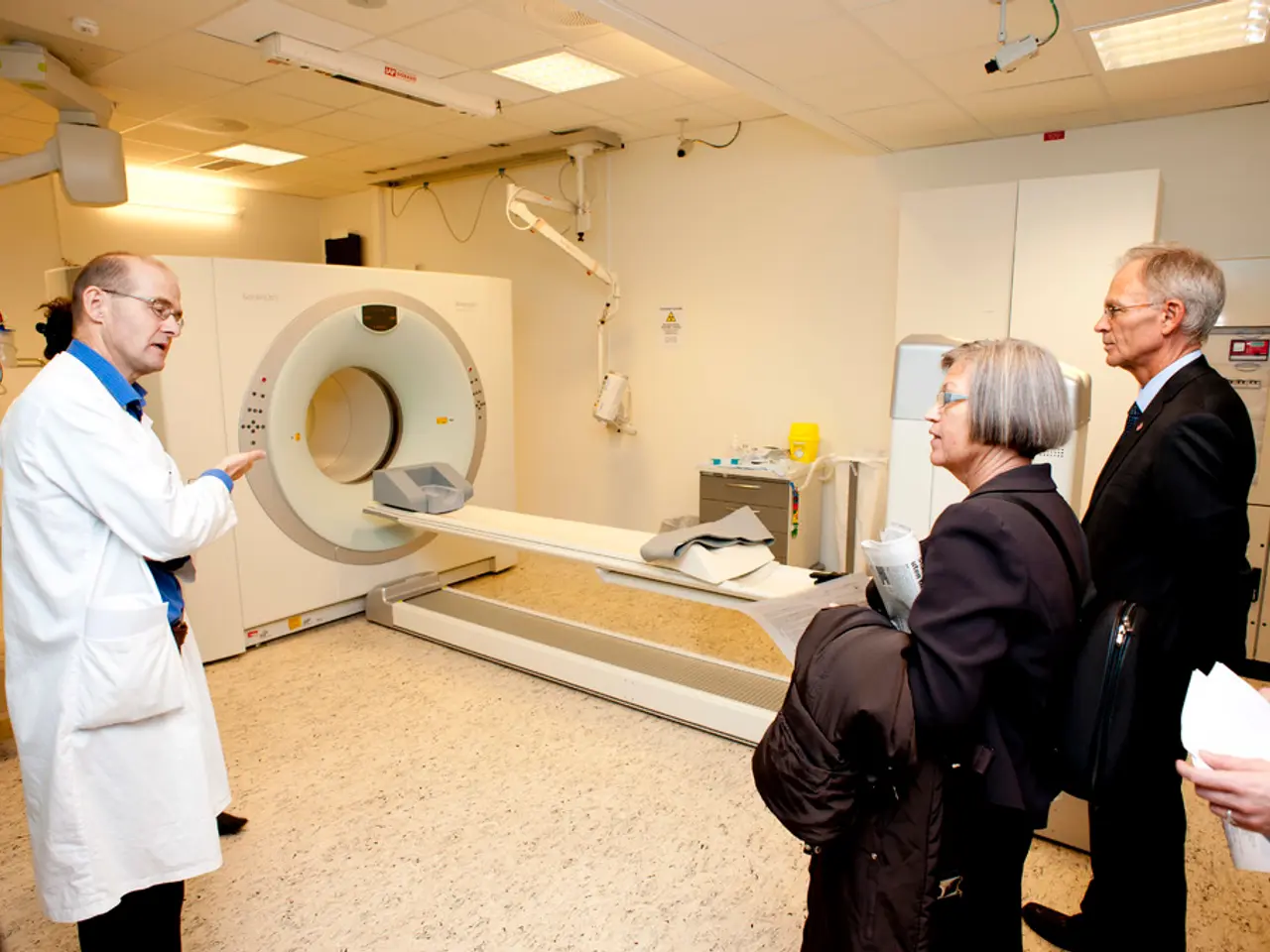Medical professional specializing in colons: Their roles and locations for consultation
A board certified colorectal surgeon is a medical professional who specializes in diagnosing and treating conditions related to the small intestine, colon, anus, perianal area, and rectum. To become one, a rigorous and extensive training process is required.
The Journey to Becoming a Colorectal Surgeon
- Earn a Medical Degree The first step towards becoming a colorectal surgeon is to obtain a Doctor of Medicine (MD) or Doctor of Osteopathic Medicine (DO) degree from an accredited medical school.
- Complete a General Surgery Residency After medical school, a 5-year surgical residency program in general surgery must be completed. This residency provides broad training in surgical care and is required before specializing in colorectal surgery.
- Undertake a Colon and Rectal Surgery Fellowship After the general surgery residency, a 1-2 year fellowship in colorectal surgery (also called colon and rectal surgery) is necessary. This fellowship provides specialized training in surgical management of colorectal diseases.
- Obtain Medical Licensure Secure a full and unrestricted medical license to practice medicine in the United States.
- Become Board Eligible and Certified in General Surgery After residency, become board eligible (and then board certified) in general surgery by passing the written and oral exams administered by the American Board of Surgery (ABS).
- Apply for Board Certification in Colon and Rectal Surgery After completing colorectal fellowship, apply for board certification through the American Board of Colon and Rectal Surgery (ABCRS). This typically requires proof of completion of accredited fellowship training in colorectal surgery, documentation of surgical experience in colorectal procedures, and passing the ABCRS written and oral certification exams.
- Maintain Certification Through Continuing Medical Education Participating in continuing certification programs, including periodic assessments and ongoing education, is required to maintain board certification status.
The Role of a Colorectal Surgeon
Colorectal surgeons can diagnose and treat a wide range of conditions, including anal incontinence, rectal pain, constipation, rectal prolapse, and diarrhea. They can also work closely with gastroenterologists to provide overall care for the digestive system.
In addition, colorectal surgeons can diagnose and treat various anorectal conditions such as hemorrhoids, anal fissures, perianal abscesses, fistulas, and anal skin tags. They can help diagnose and treat conditions such as hemorrhoids, fissures, abscesses, polyps, cancer, and more.
Finding a Colorectal Surgeon
People can find a colorectal surgeon by speaking with a doctor, using the American Society of Colon & Rectal Surgeons' website, or using the ABCRS online tool.
The Role of a Gastroenterologist
Gastroenterologists are medical professionals with a detailed understanding of the gastrointestinal organs. They do not perform surgery, but they can help diagnose conditions such as colon cancer, hepatitis, gastroesophageal reflux, peptic ulcer disease, IBS, pancreatitis, colitis, nutritional issues, gallbladder and biliary tract disease.
Sources: [1] American Board of Surgery: https://www.abms.org/certification/absurgery/ [2] American Board of Colon and Rectal Surgery: https://www.abcrs.org/ [3] American Society of Colon and Rectal Surgeons: https://www.fascrs.org/ [5] Association of American Medical Colleges: https://www.aamc.org/
This article is intended for informational purposes only and should not be used as a substitute for professional medical advice, diagnosis, or treatment.
A colorectal surgeon's extensive journey involves earning a medical degree, completing a general surgery residency, undertaking a colon and rectal surgery fellowship, obtaining medical licensure, and becoming board eligible and certified in general surgery, followed by board certification in colon and rectal surgery.
Besides treating conditions like anal incontinence, rectal pain, and constipation, colorectal surgeons can diagnose and work closely with gastroenterologists to address overall care for the digestive system, as well as various anorectal conditions.
People seeking a colorectal surgeon can consult doctors, use the American Society of Colon & Rectal Surgeons' website, or employ the ABCRS online tool to find one.
Gastroenterologists have a deep understanding of the gastrointestinal organs and help diagnose a range of conditions, although they do not perform surgery.
Exploring adolescents' educational paths, one might consider the interconnection of health and wellness, which encompasses nutrition, skin care, and fitness and exercise, as part of achieving personal growth and career development.




